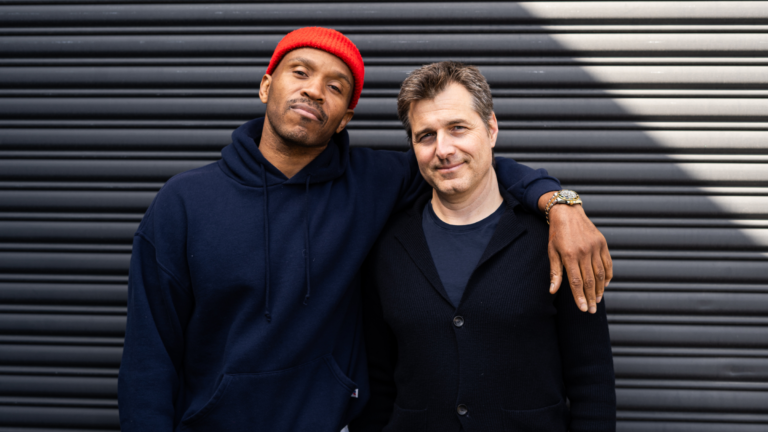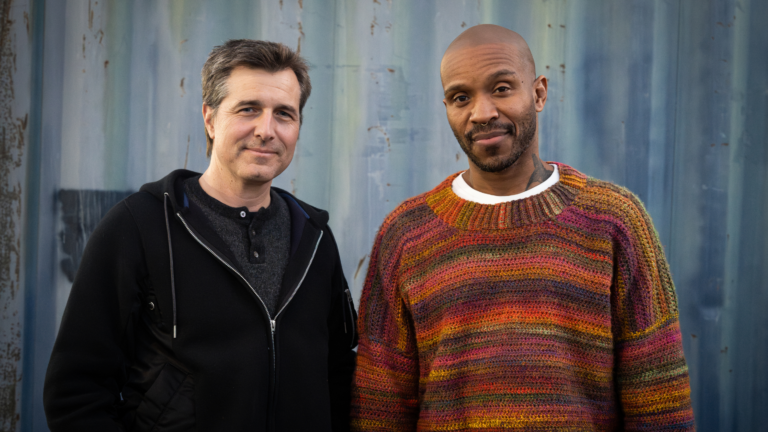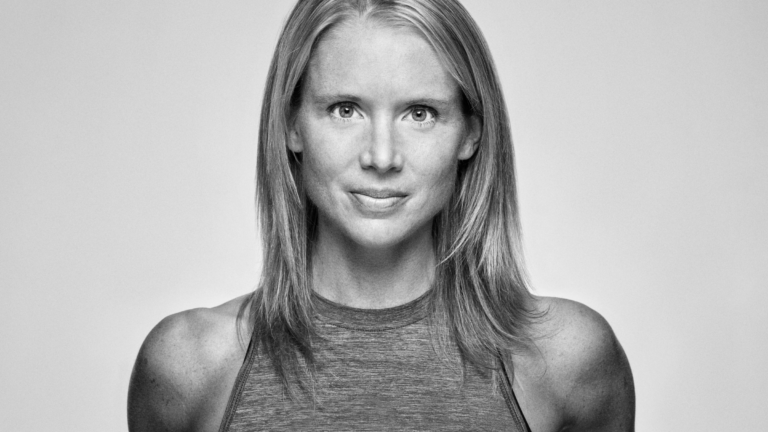This week’s conversation is with Dr. Donald Hoffman a Professor of Cognitive Sciences at the University of California, Irvine.
I got introduced to Donald through the legendary Deepak Chopra so I was very excited to speak with Donald…
Donald received a PhD from MIT and is an author of over 120 scientific papers and three books, including The Case Against Reality: Why Evolution Hid the Truth from Our Eyes.
He received a Distinguished Scientific Award of the American Psychological Association for early career research, the Rustum Roy Award of the Chopra Foundation, and the Troland Research Award of the US National Academy of Sciences.
His writing has appeared in Scientific American, New Scientist, LA Review of Books, and Edge, and his work has been featured in Wired, Quanta, The Atlantic, Ars Technica, National Public Radio, Discover Magazine, and Through the Wormhole with Morgan Freeman.
He has a TED Talk titled “Do we see reality as it is?” and that sets the tone for this conversation…
“There’s something beyond space time. Science is just now catching up on that. It’s only been in the last few decades that it’s been taken very seriously that space time is not fundamental and we’re looking for a deeper mathematical story.”
In This Episode:
What are the big questions he’s trying to answer about life as we know it?
A fundamental question about our senses is, do they tell us truths about reality? By reality, what I mean is the idea that many of us have, that there is something that exists and possibly most scientists would say, has existed for many billions of years before there was any life, before there were any creatures with senses to perceive it. There’s the Big Bang 13.8 billion years ago and then matter and energy and space expanded and planets and stars were formed and so forth. Eventually, life came around and then consciousness.
His job as a scientist
Take our best scientific theories that are mathematically precise and ask the question of those theories. What does this theory say about this question? I looked at the theory of evolution by natural selection. That’s one of, I would say, three big pillars of modern science. There’s evolution by natural selection, there’s quantum field theory and general relativity. Certainly, there are other great scientific theories, but those are like three big pillars of modern science. What I wanted to do is just ask that question of evolution. Would the theory of evolution predict on its own structure, its own mathematical structure, would it predict that sensory systems would evolve, would be shaped by natural selection, to report some truths about objective reality?
The Evolutionary Argument Against Reality
The stunning thing is that evolution doesn’t shape us with perceptions that show us the truth. It just shapes us with perceptions that help us to act in ways that we survive and reproduce. That’s what it does. It helps us survive and reproduce and you don’t need to see the truth to do that, according to evolution by natural selection.
How does he define reality?
Well, the model I’m playing with right now is that it’s a vast social network. Reality, object reality is a vast social network of interacting conscious agents. Think of like the Twitterverse but it’s a mathematical model that I’m working on, right. I define what a conscious agent is. In the Twitterverse, there are literally tens of millions of users, billions of tweets and lots of stuff trending. It would be impossible for any Twitter user to read all the tweets. There’s billions of them and you couldn’t interact with all the tens of millions of Twitter users. You wouldn’t live long enough. If you want to understand the Twitterverse, you’re going to need to have some kind of data compression, right? You’re going to need to have some kind of visualization tool, what you want to see that some tool has little eye candy that you can understand, little objects that are doing stuff.
Is the brain or our consciousness more powerful?
I think the brain doesn’t even exist when it’s not perceived. That’s my view. The brain doesn’t even… Space time doesn’t exist when it’s not perceived. Space time is our construction. From my point of view, consciousness is fundamental but that’s not just my consciousness, there’s this whole network of conscious agents that I’m working with, right. My decision will be influenced by the decisions of all the other conscious agents, right? Living, for example, United States, in our political system, we’re being influenced by all the other actions of all the other conscious agents here is very, very different than if we’re in Ethiopia or in Russia, where they’ve set up a different system and that’s going to affect how you act. Your decisions as a conscious agent, are free, but not totally free. They’re influenced by the decisions of others.
Is the brain behind our decision making process?
In every case, when we talk about free choice, it’s never absolutely free. It’s freedom within a certain bounds, which in that bounds is set partly by the free choices of others. When we look at that through the filter of our interface, what we say is, “Oh, is my brain making me do it?” Well, the brain is just my little user interface symbol for the interactions of other conscious agents that are influencing my own choices. The brain doesn’t do it. The brain is just my headset symbol dumbing down all the choices of all these other agents into a format that I can see. It looks complicated anyway. I think we do have free will, that we do make free choices that’s not absolutely free. It’s highly constrained by the free choices of others. I’m free to smoke, but not in your face, that kind of thing. We’re free to choose but my freedom ends where yours begins kind of thing. Sometimes the very framework of my free choices depends on others, other’s choices. That’s my view but my colleagues would say, I disagree that the brain does at all. I think that the brain doesn’t even exist when it’s not perceived.
Why he thinks we need to go deeper to solve the meaning of consciousness
If you’re a wizard at Grand Theft Auto, everybody’s just impressed at what you can do, you can be a wizard without knowing anything at all about the supercomputer that’s underlying the game. You might not even know that there is such a thing. You know all the tricks inside the game. It’s perfectly fine. You could be a wizard and believe that the game is the reality, that Grand Theft Auto is the final reality. That’s what it is but if you’re a software developer and you’re trying to make a change, upgrade the game, that fiction is no longer harmless. You need to step outside Grand Theft Auto, realized, no, no, that’s just a game. There’s a reality behind it. For most of neuroscience and most of thinking about human cognition and choice and emotions, most of it is perfectly fine to accept the fiction that neural activity causes our behavior, our psychology. It’s perfectly fine and it’s a very, very useful framework. It’s only when we really want to understand precisely how consciousness is related to brain activity that we realized, okay, now we’ve got to up our game. We have to realize it’s just a fiction to say the brain activity causes this stuff.
What’s his understanding of life?
I’m deeply convinced that everything that I’ve been taught is probably largely wrong. Everything that I believed is probably largely wrong. One of the big, big things that I have to work on as a person is to be good with that, to be good with not knowing and to face the fundamental and profound ignorance that’s part of the human condition. We don’t like that. We want to think that we have the answers and we know all the way down. What science teaches us is that even our best scientific theories are almost surely deeply flawed. They’re the best we’ve got so far. We know that quantum mechanics and general relativity don’t play well together in certain cases. We have to let go of space time itself.
We have a history of being wrong
We would like to think we know and we don’t and if we look back at human history, we have a really strong, consistent record of being wrong. We’re just consistently wrong and there’s no reason to believe it’s any better today. Our theories are more sophisticated. They’re not wrong in the same ways that we were wrong before but that doesn’t mean they’re not deeply, deeply wrong even our best scientific theories. If we have to let go of space time, there’s something deeply wrong with quantum field theory and general relativity, right? They assume space time. If the space time is not fundamental, then there’s something that’s far, far deeper than our best scientific theories we’ve been acknowledging.
Our quest for understanding has only just begun
No matter how far and how long we progress, we will always be just baby beginners in exploring what there is to be explored. I think that’s the ultimate human condition. We are always just at the first step, even a billion years from now, we’re just at the first step. That’s what I think is my guess of the genuine human condition. A profound humility and an excitement, for exploration and a willingness to just say, of course, maybe I know nothing, maybe everything I believe is deeply false. Be open and good with that and then explore and go deeper.
What are his opinions are spirituality?
I think that the spiritual traditions and that includes Judaistic, Islamic, Hindu, Buddhist, Fundamentalist Christian, mystical Christianity, I think they’ve all had some really important insights. On the other hand, I think that there are probably almost certainly mistakes. What we don’t want to do is to say, I’ve had this document, we had this book, The Scripture, it’s been around for 3,000 years, therefore, every verse is true. That’s not my attitude at all. My attitude is, of course, I would like to study and understand and grasp the really important insights. I’d also like to figure out where there are mistakes.
How he would like to see science and spirituality interact
What scientists do, as a group, is to propose mathematically precise theories so that we can figure out why we’re wrong. We make predictions. We figure out where we’re wrong and then we can make the next one. I would like to do that with the spiritual ideas. I think there are good ideas there and they need to be listened to. I think there’s also bad ideas there that need to be discarded for the benefit of the actual practitioners, things that are actually getting in the way of their own personal growth. How do we tell the two apart? Well, we can try to take the ideas, make them more precise, see what are the coherent systems predict and go test? It’s a humility. It’s a step away from dogmatism to a kind of precision.
What’s his dream?
My dream right now is to explore what might be beyond space time. That’s what really gets me up every day and gets me excited is I have some ideas about how this network of conscious agents might be interacting. I’m trying to show, with the team of collaborators, that I can use that theory to actually predict how to get quantum field theory and general relativity and evolution by natural selection to come out as special cases of the headset version of this deeper model.
What does the future hold?
Last time we’ve made a step in science forward, we got Maxwell’s equations for electricity and magnetism. I would guess that at least 30% of our GDP is based on Maxwell, right? The technology that came out of that is game changing. We’re talking today via Zoom, because of Maxwell and those equations that he wrote down, and later in addition, quantum mechanics and so forth. The steps I’m talking about next, where we’re talking about what’s behind space time, maybe this network of conscious agents, if that’s right or a good next step in theory building, it would give us technologies that in principle could change the very parameters of space time. We could warp space time. Everything that we’re doing right now is inside space time. This is actually changing the fundamental parameters of the game itself. That would be a game changer completely. For me, that’s pretty exciting.


